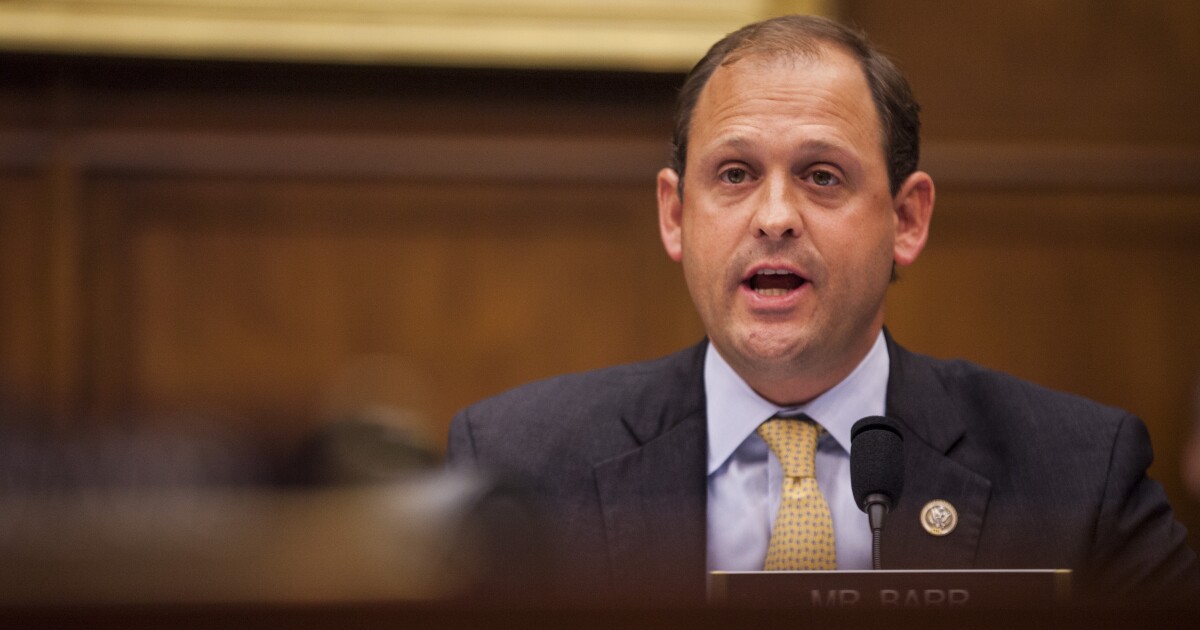
WASHINGTON — Leading Republican lawmakers on the House Financial Services Committee are releasing proposals and letters targeting the Federal Reserve's effort to expand capital rules for banks.
Rep. Andy Barr, R-Ky., said that a response to a July 7 letter sent by him and Rep. Bill Foster, D-Ill., from Fed Vice Chairman for Supervision Michael Barr "fails to answer any of our questions and is a mere restatement of proposals you and other federal regulatory agencies recently put forward." In the most recent letter, Andy Barr repeated calls for the Fed to release a cost-benefit analysis related to the Basel III endgame proposal.
Andy Barr is set to host a hearing next week in the House Financial Services subcommittee on financial institutions and monetary policy on the Biden administration's financial regulators.
"To be clear, the Subcommittee on Financial Institutions and Monetary Policy is the touchpoint for banking regulators under the Committee on Financial Services (Committee)'s jurisdiction interaction with Congress," Andy Barr wrote in the letter. "This includes matters as important as a fundamental rewrite of capital rules, or what is commonly referred to as Basel III Endgame, along with your recent proposals on G-SIB surcharges, long-term debt, resolution plans, and evidently more to come. It is unacceptable that the Vice Chairman for Supervision of the Federal Reserve is leading those changes in an opaque manner, including failing to respond in a fulsome manner to a bipartisan request from Congress."
Foster did not join in Barr's most recent letter to the Fed. In a September hearing, Foster struck a softer tone than Barr toward the Fed's rulemaking process.
"I believe that having access to the data and assumptions and methodology would allow for a more informed discussion across the board here," Foster said. "But I think we also have to recognize that bank capital requirements and regulation is never going to be an exact science. You can reasonably model the costs of any increase or decrease in bank capital requirements or other things, the costs of compliance of increased stress testing and so on."
Andy Barr's letter to the Fed references a response that he and Foster received from Michael Barr in September, which Andy Barr's office provided to American Banker. In it, Michael Barr said that, in the Fed's proposals, any loss of economic activity would be outweighed by a more robustly capitalized financial system.
"The goal of these proposals is to increase the strength and resilience of the banking system by better aligning capital requirements with risk. At the same time, I am cognizant that changes in capital requirements may entail tradeoffs and we will carefully evaluate these tradeoffs as we consider potential adjustments to our rules," Michael Barr said. "These proposals include an analysis of the expected impact of the rulemaking on large firms and the broader economy. Specifically, this analysis suggests that the benefits of a robust financial system, as well as resilient financial institutions, outweigh the costs to economic activity that may result from the additional capital required by the proposal."
Other leading Republicans on the House Financial Services Committee took steps to more strictly oversee the Fed on Thursday. Rep. French Hill., R-Ark., who currently serves as the No. 2 on the panel and could take over the gavel for Rep. Patrick McHenry, R-N.C., should McHenry be pulled away by temporary speakership duties for extended periods of time, reintroduced the Federal Reserve Loss Transparency Act.
That bill would prohibit the Fed from transferring money to the Consumer Financial Protection Bureau if the Fed incurs a loss on its balance sheet holdings. The bill would also require the Fed to calculate its net earnings in accordance with U.S. generally accepted accounting principles. Companion legislation in the Senate is being cosponsored by Sen. Bill Haggerty, R-Tenn., alongside newcomer Sen. Katie Britt, R-Ala.



